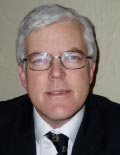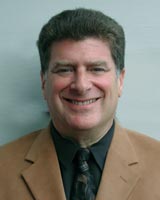A report on the conference, including a detailed conference schedule and papers related to plenary and breakout sessions.
We''d like to thank all the participants in the IIRP''s seventh international conference, "The Next Step, Developing Restorative Communities, Part 1," for making it such a great success. Held November 9-11, 2005, in Manchester, England, the conference was co-organized by the IIRP, Family Rights Group, and Real Justice UK.
About 237 people from 21 countries attended, including delegates from Australia, Belgium, Canada, the Czech Republic, Hungary, Iceland, Ireland, the Netherlands, Norway, Romania, Russia, Slovakia, South Africa, Sweden, Switzerland, Thailand, the United Kingdom (England, Northern Ireland, Scotland and Wales) and the United States.
As in previous years, restorative practitioners made presentations about their exciting work in the fields of criminal justice, child welfare and education. And more than ever, we saw evidence that this work is coalescing into initiatives to build restorative communities.
Plenary sessions
In the United Kingdom, the conference locale, the restorative approach is becoming increasingly widespread and well known. Two conference plenary sessions highlighted this growth:
|
|
Graham Robb, former headteacher seconded to the English Department for Education and Skills, spoke about restorative practices developments in education in England.
Related paper: |
|
|
Veronica Hart, manager of Stanfield Children''s Home, Welwyn-Garden City, Hertfordshire, England, spoke about how restorative practices completely changed the climate at two homes for children placed by county social services.
Related paper: |
|
Other plenary sessions illustrated the spread of restorative practices around the world: |
|
|
Ted Wachtel, IIRP president and author of Real Justice, introduced the conference, laying out his vision of restorative practices as an international social movement, beginning at the grassroots level and on a community-wide basis for children and families.
Related paper: |
|
|
Wanchai Roujanavang, director general of the Department of Juvenile Observation and Protection, Thailand Ministry of Justice, reported on the development and progress of Family and Community Group Conferencing in Thailand.
Related paper: |
|
|
Elisabeth Vandenbogaerde and Michael Michiels, youth counselors from Belgium, talked about the 18 months they spent as school counselors for the IIRP''s sister organization, the Community Service Foundation, in southeastern Pennsylvania, USA, which provides restorative programs for troubled youth.
Related paper: |
|
|
Reverend Benjamin Shortridge, founder and executive director of Los Angeles Family and Community Empowerment Services, California, USA, discussed his belief that family group decision making, or FGDM (known in the UK and elsewhere as family group conferencing, or FGC), is a way to restore the communal power of the village lost to society today and to help and families become self-sufficient and self-reliant.
Related paper: |






